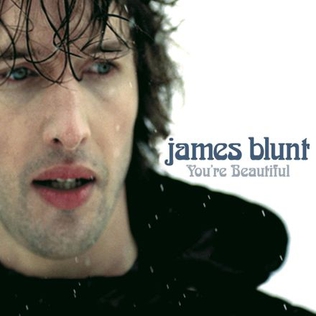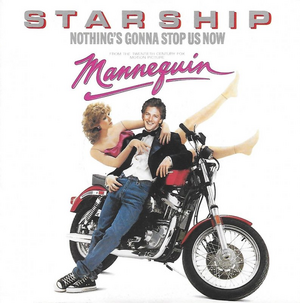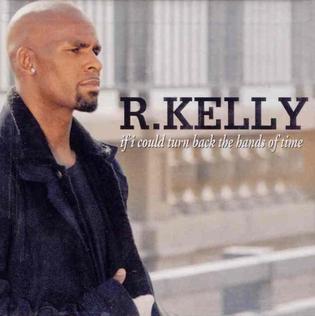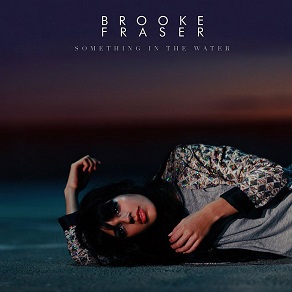Related Research Articles

"Mamma Mia" is a song by the Swedish pop group ABBA, written by Benny Andersson, Björn Ulvaeus and Stig Anderson, with the lead vocals shared by Agnetha Fältskog and Anni-Frid Lyngstad. It is the opening track on the group's third album, the self-titled ABBA (1975). The song was released in September 1975 as its sixth single. It tells the story of the narrator's on-again, off-again relationship with a lover who is repeatedly unfaithful to her. The song's name is derived from Italian and literally translates as "my mother", but is used as an interjection in situations of surprise, anguish, or excitement. The song was ABBA's first number one in the UK since "Waterloo" in 1974.

"Popcorn" is an instrumental song composed by Gershon Kingsley in 1969 for the album Music to Moog By. It was performed on the Moog synthesizer and released on the Audio Fidelity label. The name is a combination of pop for pop music and corn for kitsch. The song became a worldwide hit in 1972, when it was covered by Hot Butter, an American pop band. Since then, multiple versions of the piece have been produced and released, including those by Vyacheslav Mescherin, Anarchic System, Popcorn Makers, the Boomtang Boys, M & H Band, Crazy Frog, and the Muppets.
"Rivers of Babylon" is a Rastafari song written and recorded by Brent Dowe and Trevor McNaughton of the Jamaican reggae group The Melodians in 1970. The lyrics are adapted from the texts of Psalms 19 and 137 in the Hebrew Bible. The Melodians' original version of the song appeared on the soundtrack album for the 1972 movie The Harder They Come, which made it internationally known.

"The Air That I Breathe" is a ballad written by the British-Gibraltarian singer-songwriter Albert Hammond and the English songwriter Mike Hazlewood. It was initially recorded by Hammond on his debut album, It Never Rains in Southern California (1972). After being covered by Phil Everly in 1973, it was a major hit for the Hollies in early 1974, reaching number two in the UK Singles Chart. It was the Hollies' last major hit. The English rock band Radiohead reused the chord progression and melody of "The Air That I Breathe" for their 1992 song "Creep".

"You're Beautiful" is a song by English singer-songwriter James Blunt. It was written by Blunt, Sacha Skarbek and Amanda Ghost for Blunt's debut album, Back to Bedlam (2004). It was released as the third single of the album in 2005.
No Mercy is a German pop band of American singers who were originally brought together in Germany by producer Frank Farian. The group consists of Bronx-born Marty Cintron and twin brothers Ariel and Gabriel Hernández, who hailed from Miami.

"Lean on Me" is a song written and recorded by American singer-songwriter Bill Withers. It was released in April 1972 as the first single from his second album, Still Bill. It was a number one single on both the soul and Billboard Hot 100 charts, the latter chart for three weeks in July 1972. Billboard ranked it as the No. 7 song of 1972. It was ranked number 208 on Rolling Stone's list of "The 500 Greatest Songs of All Time" in 2010. Numerous other versions have been recorded, and it is one of only nine songs to have reached No. 1 on the Billboard Hot 100 with versions recorded by two different artists. In 2007, the 1972 recording of the song by Bill Withers on Sussex Records was inducted into the Grammy Hall of Fame. 1970s Glam Rock band 'MUD' recorded a cover of the song in 1976 that became a chart hit in the UK the same year.

"I Promised Myself" is a song written and originally performed by English singer Nick Kamen. Originally released on his album Move Until We Fly (1990), it was released as a single in the same year and, as a remix in 2004. The original version achieved success in Europe, including Austria and Sweden where it topped the charts. It has been covered multiple times by artists such as Dead or Alive, A-Teens and Basshunter.

"Nothing's Gonna Stop Us Now" is a song co-written by Diane Warren and Albert Hammond and recorded by American rock band Starship for their second studio album, No Protection (1987). It is a power ballad duet featuring vocalists Grace Slick and Mickey Thomas and is the theme to the romantic-comedy film Mannequin.

"Walk On By" is a song written by Burt Bacharach and Hal David for singer Dionne Warwick in 1963. Warwick's recording of the song peaked at number 6 on the US Billboard Hot 100 and number 1 on the Cash Box Rhythm and Blues Chart In June 1964 and was nominated for a 1965 Grammy Award for the Best Rhythm and Blues Recording.
"Don't Turn Around" is a popular song written by Albert Hammond and Diane Warren. It was originally recorded by American singer Tina Turner and released as the B-side to her 1986 hit single "Typical Male". It has since been included on Turner's compilation album The Collected Recordings: Sixties to Nineties (1994), as well as featuring in the Tina musical since 2018.

"Beggin'" is a song composed by Bob Gaudio and Peggy Farina and first released as a single by American band the Four Seasons in 1967. Initially charting at number 16 in the US Billboard Chart, the song became popular in the Northern soul scene in the United Kingdom in the 1970s. It has been covered multiple times, with versions by Norwegian hip-hop duo Madcon and Italian rock band Måneskin topping music charts in Europe and beyond. The Four Seasons' version was remixed in 2007 by French DJ Pilooski and re-released as a single, reaching number 32 in the UK Singles Chart, commercially outperforming the band's original release in the UK.

"1973" is a song by English recording artist James Blunt. It was released as the lead single from his second studio album, All the Lost Souls (2007).

"If I Could Turn Back the Hands of Time" is a song by American singer R. Kelly, released as the fifth single from his third album, R. (1998). The song is a ballad about a man wishing he could go back in time and repair his relationship with his girlfriend. The song peaked at number 12 on the US Billboard Hot 100 and became a top-10 hit across Europe, peaking at number one in Belgium, the Netherlands, and Switzerland.
"Living Next Door to Alice" is a song co-written by Nicky Chinn and Mike Chapman. Originally released by Australian pop band New World in 1972, the song charted at No. 35 on the Australian chart. The song later became a worldwide hit for British band Smokie.

"Something in the Water" is the lead single from New Zealand singer-songwriter Brooke Fraser's third studio album, Flags (2010). It was released by Sony Music Entertainment in New Zealand on 2 August 2010 and subsequently became her first chart-topper, reaching number one on New Zealand's RIANZ Singles Chart in October. It was also her first international hit, reaching the top 10 in Austria, Germany, Luxembourg, and Switzerland.

"Somebody That I Used to Know" is a song written, produced and performed by Belgian-Australian musician and singer Gotye featuring vocals from New Zealand singer Kimbra. The song was released in Australia and New Zealand through Eleven Music on 5 July 2011 as the second single from Gotye's third studio album, Making Mirrors (2011). It was later released by Universal Music in December 2011 in the United Kingdom, and 20 January 2012 in Ireland and the United States. "Somebody That I Used to Know" was written and recorded by Gotye at his parents' house on the Mornington Peninsula in Victoria, Australia, and is lyrically related to the experiences he has had with romantic relationships.

"Waves" is a song by Dutch singer and rapper Mr. Probz. Originally released through Left Lane Productions on 26 April 2013, the song became an international hit upon being remixed in a more up-tempo fashion by German DJ and record producer Robin Schulz, with Schulz's remix topping the charts in multiple countries, including Austria, Sweden, and the United Kingdom. "Waves" was sent to US dance radio by Ultra Music on 14 April 2014. The remix was the fourth best-selling song of 2014 in the UK, selling over 800,000 copies.

"See You Again" is a song by American rapper Wiz Khalifa featuring American singer-songwriter Charlie Puth. It was commissioned for the soundtrack of the 2015 film Furious 7 as a tribute to Fast & Furious actor Paul Walker, who died in a single-vehicle crash on November 30, 2013. The song was released on March 10, 2015, as the soundtrack's lead single. It was later included as a bonus track on the international release of Puth's debut album, Nine Track Mind.

"How Deep Is Your Love" is a song by Scottish DJ and record producer Calvin Harris and British production trio Disciples. It was released on 17 July 2015 and included on Harris' first compilation album, 96 Months (2024). It features uncredited vocals by Norwegian singer and songwriter Ina Wroldsen. The single received generally positive reviews, and was commercially successful, reaching the top ten in 22 countries, including number two on the UK Singles Chart and number one in Australia, Belgium, Greece, the Netherlands and Russia.
References
- ↑ Kent, David (1993). Australian Chart Book 1970–1992 (illustrated ed.). St Ives, N.S.W.: Australian Chart Book. p. 132. ISBN 0-646-11917-6.
- ↑ "Albert Hammond – Down by the River" (in German). Ö3 Austria Top 40. Retrieved 21 August 2022.
- ↑ "Albert Hammond – Down by the River" (in Dutch). Ultratop 50. Retrieved 21 August 2022.
- ↑ "Albert Hammond – Down by the River" (in Dutch). Single Top 100. Retrieved 21 August 2022.
- ↑ "Albert Hammond – Down by the River". Swiss Singles Chart. Retrieved 21 August 2022.
- ↑ "Offiziellecharts.de – Albert Hammond – Down by the River" (in German). GfK Entertainment charts. Retrieved February 18, 2019. To see peak chart position, click "TITEL VON Albert Hammond"